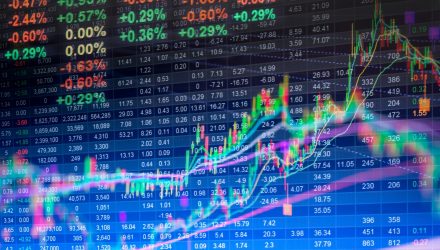While U.S. stocks have been retracing the path back to their all-time highs this months, blasting higher on Tuesday after President Donald Trump said he will be meeting with his Chinese counterpart, Xi Jinping, at the upcoming G-20 summit, and broadening anticipation for a U.S.-China trade deal, not everyone is convinced this rally is for real.
Distrustful fund mangers are exiting out of stocks and piling into cash and ultra-safe government bonds, according to a Bank of America Merrill Lynch survey published on Tuesday. They’re also rapidly decreasing their estimates of global growth and earnings.
“Investors have not been this bearish since the Global Financial Crisis, with pessimism driven by trade war and recession concerns,” Michael Hartnett, Bank of America Merrill Lynch’s chief investment strategist, wrote in the report, which surveyed 179 fund managers with more than half a trillion dollars of assets under management.
Despite what it sounds like however, that doesn’t necessarily indicate that investors are preparing for a repeat of the 2008 financial crisis. Instead, the survey proffers evidence of a rapid deterioration in sentiment among financial professionals.
That despondency helps impute why bond yields have imploded around the world as leery investors bet on more easy money from central banks. The 10-year Treasury yield tumbled on Tuesday to 2.03%, down sharply from 2.6% in April.
Even though President Trump continues to give positive indications that a deal will be orchestrated with China soon, the biggest fear continues to be the trade war. Fifty-six percent of investors surveyed by Bank of America listed it as the top “tail risk.”
Global growth expectations essentially “collapsed” between May and June by the largest margin in the 23-year history of the Bank of America fund manager survey. Fifty percent of investors are now expecting growth will deteriorate over the next year. In addition, an whopping 87% of investors surveyed by Bank of America say the global economy is in the late cycle.
Still, when average cash balances increase above 4.5%, a contrarian buy signal is triggered for stocks, according to Bank of America. The bank’s “Bull & Bear Indicator” is also creeping toward a contrarian buy signal, though it’s still not there yet.
“The tactical ‘pain trade’ is higher yields and higher stocks,” Hartnett wrote, “particularly if the Fed cuts rates on Wednesday.”
For investors looking for continued upside in U.S. equities over international equities, the Direxion FTSE Russell US Over International ETF (NYSEArca: RWUI) offers them the ability to benefit not only from domestic U.S. markets potentially performing well, but from their outperformance compared to international markets.
Conversely, if investors believe that international markets will outperform U.S. domestic markets, the Direxion FTSE International Over US ETF (NYSEArca: RWIU) provides a means to not only see international markets perform well, but a way to capitalize on their outperformance compared to the U.S. markets.
For more investing ideas, visit ETFtrends.com.

